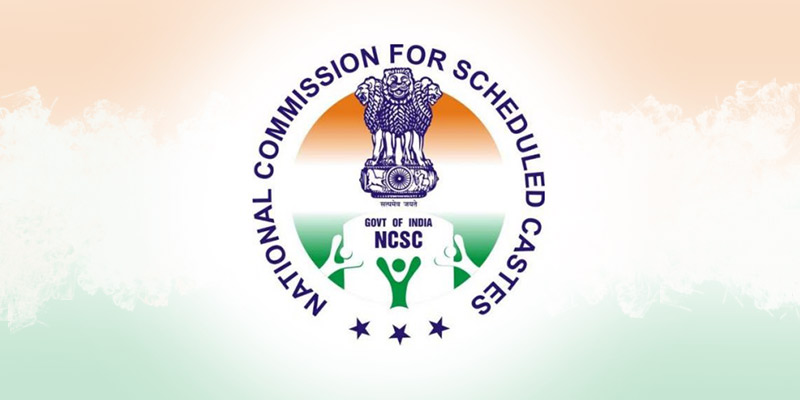- India
- Feb 17
Explainer - National Commission for Scheduled Castes (NCSC)
• Arun Haldar, vice chairman (chairman in-charge) submitted the Annual Report 2022-23 of the National Commission of Scheduled Castes to President Droupadi Murmu on February 16.
• The report contains various recommendations on the issues entrusted to the Commission regarding protection of Constitutional Safeguards of the Scheduled Castes as enshrined in the Constitution of India.
• According to the mandate given to the NCSC under Article 338 of the Constitution, it is the duty of the Commission to present to the President annually and at other times as the Commission may deem fit, reports upon the working of the constitutional safeguards of the Scheduled Castes.
• The reports may include recommendations for the measures required to be taken by the Centre and states for the effective implementation of those safeguards and other measures for the protection, welfare and socio-economic development of the Scheduled Castes.
National Commission for Scheduled Castes
• The Office of the Commissioner for Scheduled Castes (SCs) & Scheduled Tribes (STs) was created in 1950 for effective implementation of various safeguards provided in the Constitution for the SCs & STs and various other protective legislations. In addition to it, a multi-member Commission for SCs and STs was set up in 1978.
• In 1992, these two organisations were replaced by a statutory multi-member National Commission for SCs and STs.
• Since the needs, problems and the solutions required for STs were quite different from those of SCs, a special approach for tribal development and an independent machinery to safeguard the rights of STs was considered necessary.
• With the 89th Amendment of the Constitution coming into force on February 19, 2004, the National Commission for Scheduled Castes was set up under Article 338 on the bifurcation of the erstwhile National Commission for Scheduled Castes and Scheduled Tribes to oversee the implementation of various safeguards provided to Scheduled Castes under the Constitution.
• Accordingly, a separate National Commission for Scheduled Tribes (NCST) was set up by amending Article 338 and inserting a new Article 338A in the Constitution.
• In accordance with clause 9 of Article 338 of the Constitution, the Union government and every state government shall consult the Commission on all major policy matters affecting Scheduled Castes.
Duties and Functions of the Commission:
The Constitution of India under Article 338 has assigned the following duties and functions to the Commission.
a) To investigate and monitor all matters relating to the safeguards provided for the Scheduled Castes under the Constitution or under any other law for the time being in force or under any order of the government and to evaluate the working of such safeguards.
b) To inquire into specific complaints with respect to the deprivation of rights and safeguards of the Scheduled Castes.
c) To participate and advise in the planning process of socio-economic development of the Scheduled Castes and to evaluate the progress of their development under the Union and any state.
d) To present to the President, annually and at such other times as the Commission may deem fit, reports upon the working of those safeguards.
e) To make in such reports, recommendations as to the measures that should be taken by the Union or any state for effective implementation of those safeguards and other measures for the protection, welfare and socio-economic development of the Scheduled Castes.
f) To discharge such other functions in relation to the protection, welfare and development and advancement of the Scheduled Castes as the President may, subject to the provisions of any law made by Parliament, by rule specify.
Powers of the Commission:
The Commission shall, while investigating any matter referred to it, have the powers of a civil court trying a suit and in particular in respect of the following matters:
a) Summoning and enforcing the attendance of any person from any part of India and examining him on oath.
b) Requiring the discovery and production of any document.
c) Receiving evidence on affidavits.
d) Requisitioning any public record or copy thereof from any court or office.
e) Issuing commissions for the examination of witnesses and documents.
f) Any other matter which the President may, by rule, determine.
Manorama Yearbook app is now available on Google Play Store and iOS App Store

